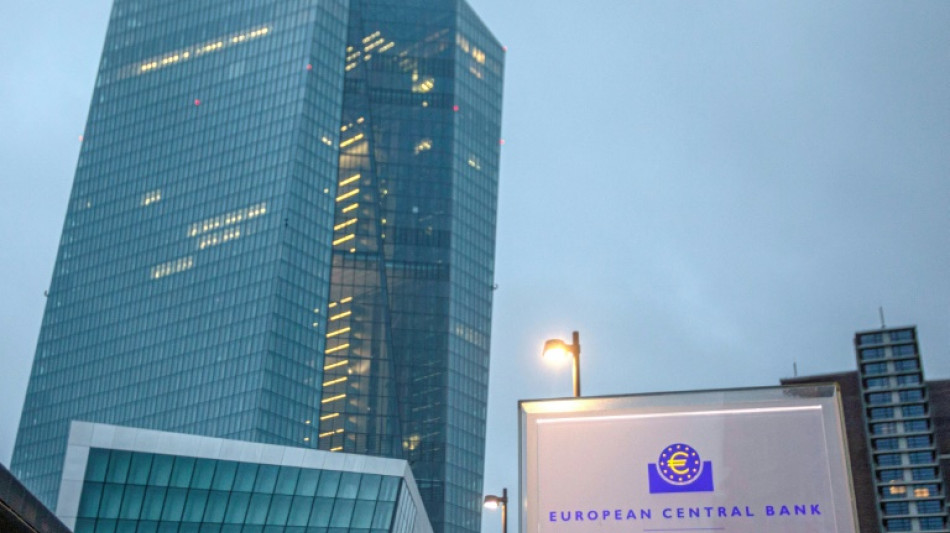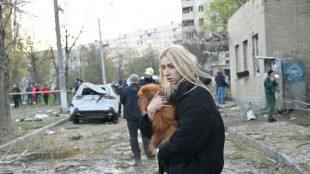
-
 SFWJ / Medcana Announces Strategic Expansion Into Australia With Acquisition of Cannabis Import and Distribution Licenses
SFWJ / Medcana Announces Strategic Expansion Into Australia With Acquisition of Cannabis Import and Distribution Licenses
-
Maresca confident he will survive Chelsea slump

-
 Mob beats to death man from persecuted Pakistan minority
Mob beats to death man from persecuted Pakistan minority
-
Lebanon says one killed in Israeli strike near Sidon

-
 Arsenal's Havertz could return for Champions League final
Arsenal's Havertz could return for Champions League final
-
US officials split on Ukraine truce prospects

-
 Client brain-dead after Paris cryotherapy session goes wrong
Client brain-dead after Paris cryotherapy session goes wrong
-
Flick demands answers from La Liga for 'joke' schedule

-
 'Maddest game' sums up Man Utd career for Maguire
'Maddest game' sums up Man Utd career for Maguire
-
Trial opens for students, journalists over Istanbul protests

-
 Gaza rescuers say Israeli strikes kill 24 after Hamas rejects truce proposal
Gaza rescuers say Israeli strikes kill 24 after Hamas rejects truce proposal
-
'Really stuck': Ukraine's EU accession drive stumbles

-
 'Not the time to discuss future', says Alonso amid Real Madrid links
'Not the time to discuss future', says Alonso amid Real Madrid links
-
74 killed in deadliest US attack on Yemen, Huthis say

-
 Southgate's ex-assistant Holland fired by Japan's Yokohama
Southgate's ex-assistant Holland fired by Japan's Yokohama
-
Vance meets Meloni in Rome before Easter at the Vatican

-
 Ryan Gosling to star in new 'Star Wars' film
Ryan Gosling to star in new 'Star Wars' film
-
Hamas calls for pressure to end Israel's aid block on Gaza

-
 Russia says Ukraine energy truce over, US mulls peace talks exit
Russia says Ukraine energy truce over, US mulls peace talks exit
-
58 killed in deadliest US strike on Yemen, Huthis say

-
 Museums rethink how the Holocaust should be shown
Museums rethink how the Holocaust should be shown
-
Three dead after deadly spring storm wreaks havoc in the Alps

-
 No need for big changes at Liverpool, says Slot
No need for big changes at Liverpool, says Slot
-
Bloody Philippine passion play sees final performance of veteran 'Jesus'

-
 New US envoy prays, delivers Trump 'peace' message at Western Wall
New US envoy prays, delivers Trump 'peace' message at Western Wall
-
Postecoglou sticking around 'a little longer' as Spurs show fight in Frankfurt

-
 US threatens to withdraw from Ukraine talks if no progress
US threatens to withdraw from Ukraine talks if no progress
-
Tears and defiance in Sumy as Russia batters Ukraine border city

-
 Russia rains missiles on Ukraine as US mulls ending truce efforts
Russia rains missiles on Ukraine as US mulls ending truce efforts
-
Tokyo leads gains in most Asian markets on trade deal hopes

-
 Two missing after deadly spring snowstorm wreaks havoc in the Alps
Two missing after deadly spring snowstorm wreaks havoc in the Alps
-
'War has taken everything': AFP reporter returns home to Khartoum

-
 US strikes on Yemen fuel port kill 38, Huthis say
US strikes on Yemen fuel port kill 38, Huthis say
-
Slegers targets Lyon scalp in pursuit of Arsenal European glory

-
 'Defend ourselves': Refugee girls in Kenya find strength in taekwondo
'Defend ourselves': Refugee girls in Kenya find strength in taekwondo
-
China's manufacturing backbone feels Trump trade war pinch

-
 Sri Lankans throng to Kandy for rare display of Buddhist relic
Sri Lankans throng to Kandy for rare display of Buddhist relic
-
Chinese vent anger at Trump's trade war with memes, mockery

-
 Heartbroken Brits abandon pets as living costs bite
Heartbroken Brits abandon pets as living costs bite
-
Mongolian LGBTQ youth fight for recognition through music, comedy

-
 Cash crunch leaves Syrians queueing for hours to collect salaries
Cash crunch leaves Syrians queueing for hours to collect salaries
-
Lyon left to regroup for Champions League bid after painful European exit

-
 Unravelling Real Madrid face Athletic Bilbao Liga test
Unravelling Real Madrid face Athletic Bilbao Liga test
-
Napoli disturbing buoyant Inter's peace in Serie A Easter bonanza

-
 Disappointed Dortmund chase consistency with Europe at stake
Disappointed Dortmund chase consistency with Europe at stake
-
Asian markets mixed as traders track tariff talks

-
 Yan and Buhai share lead at LA Championship
Yan and Buhai share lead at LA Championship
-
Under fire at debate, Canada PM Carney tries to focus on Trump

-
 Liverpool poised for Premier League coronation, Leicester, Ipswich for relegation
Liverpool poised for Premier League coronation, Leicester, Ipswich for relegation
-
India's elephant warning system tackles deadly conflict


ECB sits tight as inflation pressure rises
The European Central Bank stuck to its ultra-loose monetary policy on Thursday, despite record inflation in the eurozone putting the Frankfurt-based institution under mounting pressure.
The inflation rate unexpectedly rose to 5.1 percent in the euro area in January, official data showed Wednesday.
The figure is an all-time high since records for the currency club began in 1997, 0.1 points higher than the figure for December and well above the ECB's two-percent target.
The steep rise in prices seen globally has induced other central banks to act, with the Bank of England announcing it would raise its main rate by a quarter point to 0.5 percent at a meeting on Thursday.
The US Federal Reserve is widely expected to follow suit soon after signalling multiple rate hikes this year.
But ECB policymakers left its rates at record lows, including a negative deposit rate that charges financial institutions to park their cash with the central bank overnight.
While the decision to stand pat was expected, the pressure on the ECB to tighten policy would grow "in the course of the year", said Fritzi Koehler-Geib, chief economist at the German public lender KfW.
Observers will be scouring ECB chief Christine Lagarde's planned remarks later Thursday for any indication of a change in thinking within the central bank.
The former French finance minister has increasingly acknowledged the risk that inflation could be higher than the ECB expects but has so far said any rate hikes this year were "very unlikely".
- Gas peak -
The ECB must tread a fine line between the "falling necessity to continue stimulating the economy and actually bringing higher inflation down", said Carsten Brzeski, head of macro at the ING bank.
The eurozone economy reached its pre-coronavirus pandemic level in the fourth quarter of 2021, but tightening too quickly could threaten to derail the recovery.
The surge in inflation in Europe has been driven by a range of factors, but mostly on the supply side rather than the demand side, where the ECB has fewer levers to effect change.
Widespread shortages of raw materials and key components -- everything from wood to semiconductors -- have weighed on production and added to the upward pressure on prices.
In addition, energy prices have spiked, hitting multi-year highs towards the end of last year.
In Europe, the market has become captive to rising tensions between Moscow and the West over the massing of Russian troops on the border with Ukraine.
Any escalation in the conflict could cause prices to shoot up further.
- Second round -
While tightening monetary policy could do little to bring gas prices down or avoid a conflict in Ukraine, the ECB would be keeping a close eye on "second-round effects", ECB executive board member Isabel Schnabel told the German daily Sueddeutsche Zeitung in January.
Higher energy prices could mean goods and services "become more expensive and wages would start rising", she said.
On the other side of the Atlantic, wage increases have been more visible, contributing to driving US inflation to as high as seven percent in December.
That and the comparatively lower importance of energy prices have encouraged the Federal Reserve to take tough action.
The ECB's more cautious response is predicated on its forecasts that see inflation dropping below the central bank's two-percent goal in 2023 and 2024 and a promise to end stimulus bond purchases before hiking rates.
At its last meeting in December, the ECB announced a "step-by-step" reduction in its pandemic emergency bond-buying programme.
It will not update its growth and inflation projections until its next meeting in March.
F.Bennett--AMWN